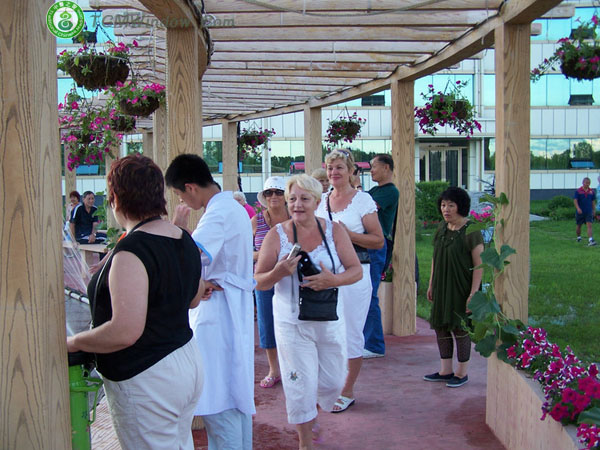
Clients from Netherland are looking around our herbal garden. They are so curious at everything they see here.
Chinese medicine (TCM) has been fighting for a lawful place in Europe, the world's largest market for herbal medicine since the European Union (EU) tightened its qualification for the sale of herbal medicinal products in member states a few years ago. An EU directive, issued in March 2004 and fully implemented this May, requires that products of herbal drugs should be outlawed in the EU market unless they obtain a medical license from any EU member state. However, not a single Chinese herbal medicinal product has gone through the authorization so far, mainly due to the prohibitive registration cost and lack of required evidence to prove the product has a 30-year history of safe use, including 15 years in the EU. Actually, by elevating the threshold, the directive is trying to force China's TCM producers to abandon the EU market, which takes up more than 40 percent of the global market share.
With a history of more than 2,000 years, TCM did not enter the EU market until mid-1990s and has been sold as food supplements instead of drugs. In spite of this, TCM's globalization ambition has not been doomed by the directive. On June 1, the Foci Pharmaceutical Company, based in Lanzhou of China's northwestern Gansu Province, applied for a product license for a medication containing concentrated Chinese angelica, a type of herb, from the Swedish drug administration, becoming the first Chinese TCM producer to apply for a license in an EU country. As Chinese TCM producers ramp up their efforts to enter the EU, their home market are being snatched away by their counterparts from Japan, South Korea and Germany. By exporting products made of herbal ingredients bought from China at relatively low prices, foreign TCM makers have raked in fat profits. Statistics show that foreign firms have gained about 30 percent of China's TCM market share.

![Diseases, Symptoms, tcm, [tcmwindow.com]](/uploadFile/adImg/2015/4/24/6de633b8-0a7a-4546-868a-02389edf5c65.png)





